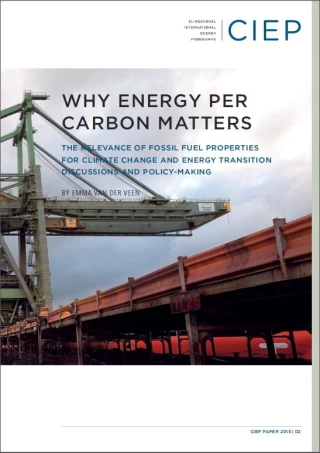
Why Energy per Carbon Matters
- Publication:
- CIEP, March 2015
The Relevance of Fossil Fuel Properties for Climate Change and Energy Transition Discussions and Policy-Making
Considering the still significant role of fossil fuels in future energy mix scenarios and their potential impact on climate, their energy and carbon properties should be carefully considered in climate discussions and energy policy-making. Coal, oil and gas differ significantly in the amount of energy that they contain per unit of, for instance, weight or volume. The basic argument of this paper is the relevance of the 'energy per carbon' concept, especially in light of discussions on the carbon budget and the claim that most of the world's fossil fuel reserves should stay in the ground if the global temperature increase is to remain below the 2°C limit.
In this paper, the different carbon and energy properties of fossil fuels are examined based on certain assumptions about the efficiency of energy technologies. We explain, and where possible quantify, that: 1) energy content differs among fuels; 2) the energy output possible within the carbon budget depends on fuel choice; and thus 3) through fuel choices the world can push back the time that we will hit the carbon ceiling.
The paper concludes with some reflections on the theoretical nature of this work, because not all relevant factors have been taken into account, nor is the real energy mix as 'black and white' as is here reviewed.





